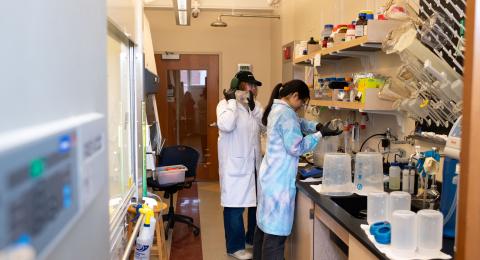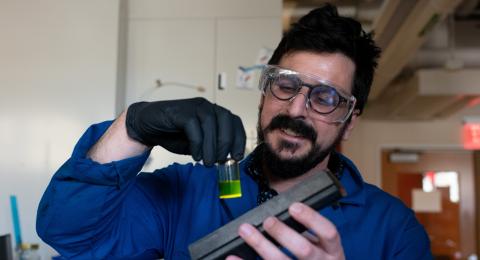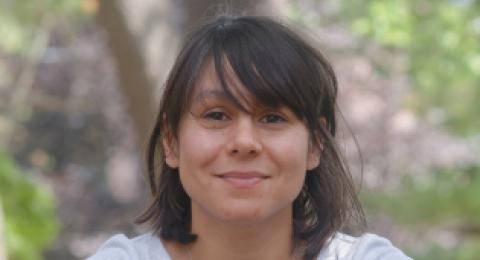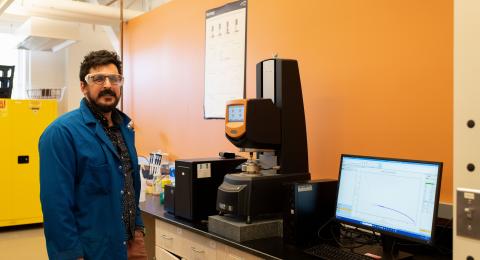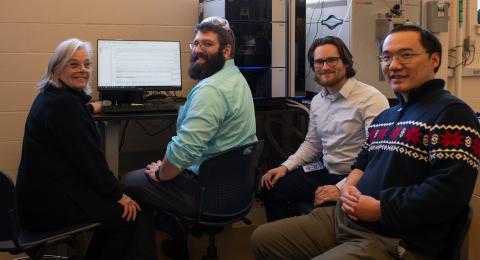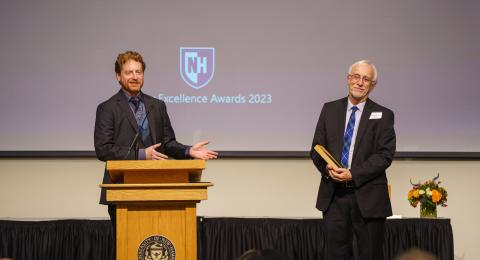Chemistry
Explore the Department of Chemistry
Welcome to the Department of Chemistry at the University of New Hampshire. We are dedicated to chemistry research and education at all levels. We have a long, proud tradition of providing a challenging and nurturing environment for our students.
Congratulations Professor Bauer!

We are pleased to share that Professor Bauer has received a 2025 ACS Award for Achievement in Research for the Teaching and Learning of Chemistry.
This award acknowledges substantial contributions for conducting research concerning the teaching and learning of chemistry. This is based on Professor Bauer’s record of continual publication of research in professional journals and presentation of research results at national conferences. Some work is accomplished by students earning their PhD in Chemistry Education under Professor Bauer’s mentorship. Other work involves collaborations with scientists at other universities. The work includes fundamental studies of how students visualize atoms and molecules, types of chemical bonding, and to what extent student concepts grow (or not) over time. He is also well known for research, development, and promulgation of active-learning approaches for large and small class settings, including undergraduate peer instructional leaders (Peer-Led Team Learning, PLTL), student-team learning (Process-Oriented Guided Inquiry Learning, POGIL), and the inquiry-based demonstration course “Fire & Ice”, linked here:
Windows on the STEM Inquiry Class – A STEM Education Project, PI Prof. Chris Bauer, UNH (usnh.edu)
Information for Users | Fire and Ice | University of New Hampshire (unh.edu)
See the full article on UNH Today: https://www.unh.edu/unhtoday/2024/09/bauer-recognized-research-achievem…
2025 Poster Session and Award Ceremony
Congrats to all who participated!
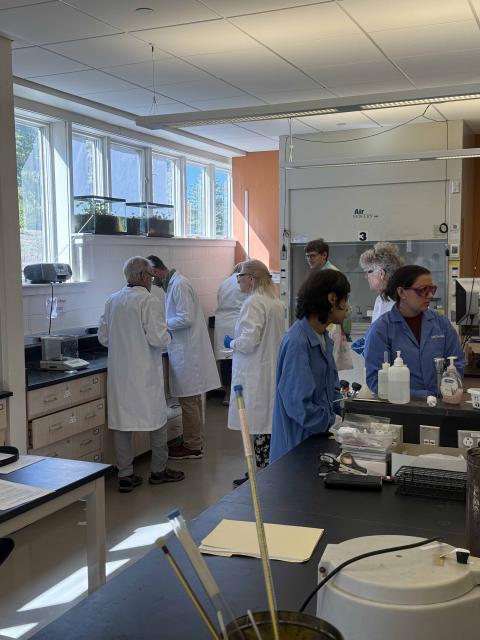
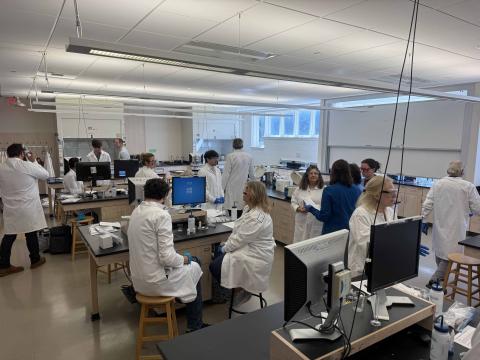
NEACT Fall 2025
New England Association of Chemistry Teachers!
What a great time supporting and inspiring Teachers in our labs.
These teachers will now bring the experiments they learned back to their students who will learn about the exciting things happening in the UNH Chemistry Department.
Current UNH Chemistry students talk about their experiences:
Tim Murphy speaks about his favorite parts of being a chemistry student at UNH!
CJ Wilson is a Ph.D. student studying here in the Chemistry Department. His research includes combating climate change with hybrid photocatalytic systems and electrocatalytic systems that turn elements such as sunlight or CO2 into clean fuel.
Upcoming Events
-
April 23rd, 2026, 8:30 a.m. - 6 p.m.
Programs of Study
Recent Stories

Powerful New Research Technology Comes to UNH
Powerful New Research Technology Comes to UNH
New instrument expands research capabilities, accelerates innovation, and gives students in-demand biotech skills
Article
How to Stay Warm in the Cold This Winter: Tips From an Arctic Researcher
How to Stay Warm in the Cold This Winter: Tips From an Arctic Researcher
Learn how to properly bundle up to fend off frigid temperatures
Article
How Could AI Reshape the Field of Computing? We Ask a UNH Expert
How Could AI Reshape the Field of Computing? We Ask a UNH Expert
Professor of computer science weighs in on what AI's rapid evolution means for society at large and education at UNH
Article